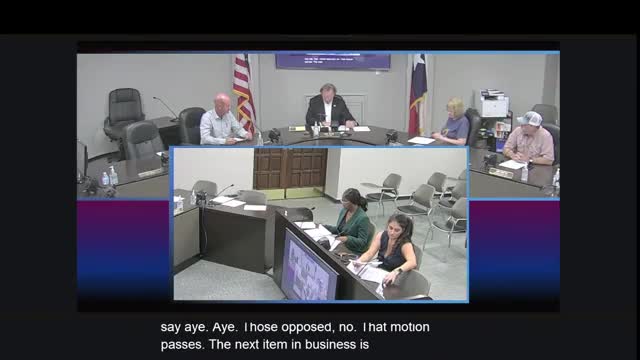McLennan County Rural Transit reports ridership gains, plans service changes for China Spring–Crawford route
Get AI-powered insights, summaries, and transcripts
Subscribe
Summary
Board heard an operations report showing a 14% increase in rural commuter ridership and a 6.4% overall increase; staff described hiring-driven capacity gains, demand-response scheduling via the Spare app, and a proposed amendment to shift hours on the China Spring–Crawford commuter run to serve students.
The McLennan County Rural Transit District Board on Oct. 17, 2025 heard an operations report showing recent ridership gains and plans to change hours on the China Spring–Crawford commuter route to better serve students.
Operations staff said the district saw a 14% increase in rural commuter ridership in the last fiscal year and a 6.4% increase overall. Staff attributed the rise to a hiring campaign begun in April and May and to outreach efforts such as “collaborative cafes” with community groups, including Mobilize Waco.
The changes matter because higher ridership increases the district’s eligibility for matching funds and can justify expanded runs and more vehicles. Staff said the district is ordering additional vehicles to keep pace with demand and that the agency is working to promote the routes that already show gains.
Staff described two distinct service types. Commuter routes operate on set schedules and feed into Waco’s fixed routes; demand-response trips are booked via the Spare app and are grouped by algorithm to optimize rural runs. Staff said riders can schedule demand-response trips as far as two weeks in advance, or as close as 24 hours before a trip. Central Texas Senior Ministries and Meals on Wheels account for a portion of contracted trips; staff said the CTSM relationship accounted for 5,310 trips in the period shown.
The board was told the China Spring–Crawford line performed well initially but tapered off. Staff said they have filed an amendment with the contractor to change service hours, shifting some runs to before peak times so students could use the service to get to school and adding late runs to improve return trips. Once the amendment is approved and executed, staff said they will provide details and promote the changed schedule.
Board members asked for historical comparisons for demand response and commuter numbers so they can see pre-COVID baselines; staff said they will provide the historical slides at the next meeting. The board voted to accept the operations report.
Less critical details: staff emphasized partnerships with employers (Sanderson Farms was cited as arranging late-night trips and paying a fee for service at night) and noted that some trips are Medicaid-contracted and used as a local match for grant reimbursement.
